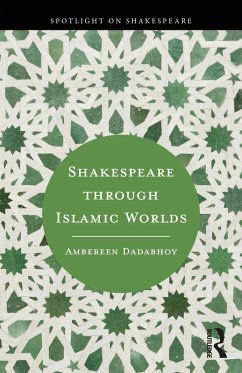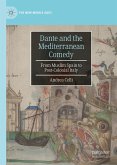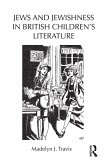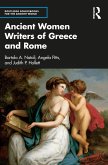By exploring the limited ways in which Shakespeare uses Islamic and Muslim tropes and topoi, Ambereen Dadabhoy argues that Islam and Muslim cultures function as an alternate or shadow text in his works, ranging from his staged Mediterranean plays to his histories and comedies. By consigning the diverse cultures of the Islamic regimes that occupied and populated the early modern Mediterranean, Shakespeare constructs a Europe and Mediterranean freed from the presence of non-white, non-European, and non-Christian Others, which belied the reality of the world in which he lived.
Focusing on the Muslims at the margins of Shakespeare's works, Dadabhoy reveals that Islam and its cultures informed the plots, themes, and intellectual investments of Shakespeare's plays. She puts Islam and Muslims back into the geographies and stories from which Shakespeare had evacuated them. This innovative book will be of interest to all those working on race, religion, global and cultural exchange within Shakespeare, as well as people working on Islamic, Mediterranean, and Asian studies in literature and the early modern period.
Honorable Mention: The SAA First Book 2025
Dieser Download kann aus rechtlichen Gründen nur mit Rechnungsadresse in A, B, BG, CY, CZ, D, DK, EW, E, FIN, F, GR, HR, H, IRL, I, LT, L, LR, M, NL, PL, P, R, S, SLO, SK ausgeliefert werden.
S. Magedanz, Choice, October 2024 Vol. 62 No. 2
'In her stimulating if dense scholarly study, Ambereen Dadabhoy sets out on a passionate quest to uncover the textual traces of Islam and Muslims in Shakespeare's works. The result is a coherent piece of analysis that refuses to shy away from pointing the finger at the playwright himself. One does have to wonder why Shakespeare left Muslims out. You would imagine that seemingly exotic characters should have been good for business - and his Globe Theatre audience loved to boo a villain. Dadabhoy contends in no uncertain terms that Shakespeare was deliberately excising and erasing Muslims from his plots. . . . [T]his remains an overdue work that, if it does one thing, raises an alarm about the nonchalantly perceived universality of the world's most famous writer - a figure with whom Muslims around the world have long engaged and, as a quarter of the world's population today, will continue to do'
Islam Issa, TLS
Honorable Mention: The SAA First Book 2025









